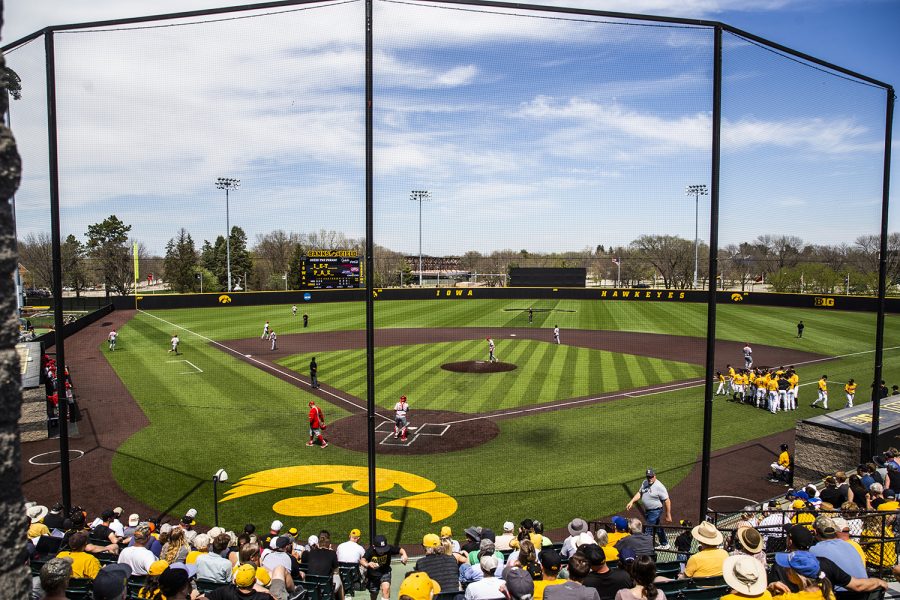Spring-sport athletes to receive extra year of eligibility, winter-sport athletes denied
The NCAA Division I Council ruled on Monday to give spring-sport student-athletes an extra year of eligibility. The Council didn’t include winter-sport student-athletes in the waiver.
Players prepare to take the field during the baseball game against Nebraska at Duane Banks Field on Sunday, April 21, 2019. The Cornhuskers defeated the Hawkeyes, 3-2.
March 30, 2020
It’s been a tough and unprecedented time for student-athletes who compete at the Division I level.
On Monday, some received some good news while others did not.
The NCAA Division I Council approved a blanket waiver for all spring-sport athletes to receive an extra year of eligibility after having their 2020 seasons cut short due to COVID-19 concerns. Winter-sport athletes, however, were not granted an extra year.
With the new waiver, schools do not have to offer the same amount of aid they did in 2019-20. It will be a case-by-case basis with the school deciding how much each athlete will receive. This stipulation applies only to student-athletes who would have exhausted their eligibility after the 2020 season.
Schools can also utilize the NCAA Student Assistance Fund to pay for scholarships for those who choose to return.
“The Council’s decision gives individual schools the flexibility to make decisions at a campus level,” Council chair and Penn Athletics Director M. Grace Calhoun said in a release. “The Board of Governors encouraged conferences and schools to take action in the best interest of student-athletes and their communities, and now schools have the opportunity to do that.”
Financial aid rules have also been adjusted for the upcoming season, allowing spring teams to carry more scholarship players to account for incoming freshmen and returning seniors.
The Council also increased the roster limit for baseball, the only spring sport with a roster cap.
The waiver gives spring seniors another chance to close their careers on their terms, while freshmen will have the opportunity to develop before competing again.
It will also be helpful to student-athletes who compete in sports such as rowing, which didn’t begin its season before it was canceled.
The opposite is true for winter athletes.
While they played the majority of their seasons, the championship portion of their schedule was cut out. With the decision goes the seniors’ last chance to compete for a national title.
The Council members declined to include winter-sport athletes in the decision, as all or much of their regular seasons had been completed.



